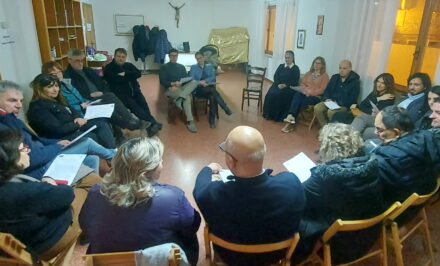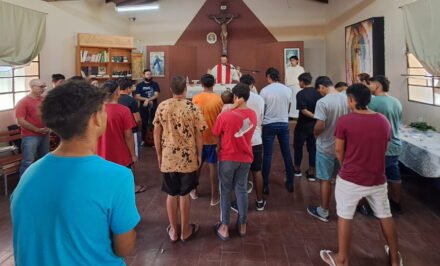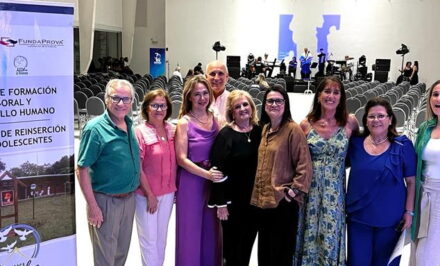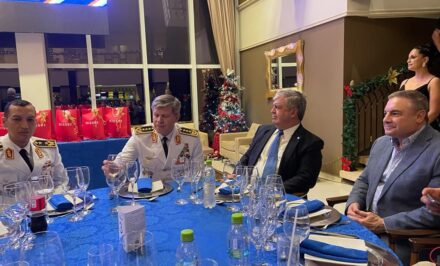AUSTRIA, from Susanne Leibrecht via schoenstatt.at •
One of the most current and visible signs of our times is without doubt the huge stream of refugees entering Europe. For Dr Stefan Keznickl, a Schoenstatter and former asylum adjudicator – it was the direct occasion to organise an evening at the Schoenstatt Centre, Kahlenberg, Vienna, on 15 October 2015 on the subject “People fleeing – what can we do?”
It is a matter close to this lawyer’s heart to pass on facts and inspirations on this subject. He is convinced that it depends in the first place on our competence in dealing with the changes caused by the refugees whether it becomes a positive or negative experience for Europe. According to Dr Keznickl this new situation could be one of the great problems faced at present by humankind. We will need a great deal of strength, exertion and ideas to cope with this challenge. It has many and varied reasons that can only be briefly mentioned in a short talk on a single evening, for example,
- the trauma suffered by many refugees because of their personal experiences of war;
- the misinformation and ignorance of many countries for which the refugees are aiming;
- the enormous chain of people smugglers that make this flood of refugees possible,
- to some extent the considerable educational differences;
- totally different cultural influences (image of woman, blood feuds, politics/types of states, religions, approaches to the truth).
From his personal experience as a former asylum adjudicator for people from Afghanistan, and as a Schoenstatter who reflects on the signs of the times, he mentioned many examples he had personally encountered at work and in private. He was also able to present numbers and statistics he had collated from his research.
Politics and Justice
Each state has the duty to protect its citizens. If it can no longer do so, this duty passes to other states. According to the 1951 Geneva Refugee Convention “a refugee is a person who is outside his or her country of nationality or habitual residence [and] has a well-founded fear of being persecuted because of his or her race, religion, nationality, membership of a particular social group or political opinion.”
A distinction is made between “asylum” (a recognised refugee) and “subsidiary protection” (de facto similar, but without the reason of persecution).
In Austria, which is obliged to do so by international law, each application for asylum has to follow a process, which can take between two or three years to carry out.
“Islam” – integration
Within Islam many changes have taken place. In secular societies Muslims change their behaviour, conflicts arise between communities of believers, and to some extent even within families, about the position of woman and man, democracy, etc.
How can we counteract the formation of “ghettos for Muslims” in the countries to which they go? Will men learn to accept that women in Europe have a different position from their countries of origin? How will the massive majority of Muslim refugees allow themselves to be integrated into our Western cultures?
Refugee expertise and Kentenich expertise
According to Dr Keznickl the question of successful integration is the key to the whole matter. The greater our knowledge, the more it will help with integration – because it helps to reduce fear and enables us to encounter others differently.
Based on the question “What can I do?” the participants formed three small groups in the second half of the evening and chose selected texts of Fr Kentenich to discuss. What was read was connected with personal questions, experiences, attempted solutions and resolutions. The main points raised by each of the groups were then presented to the full assembly at the end of the evening.
A saying of Fr Kentenich can offer consolation and confidence because it is still valid to the challenges of our times:
It must be a glorious world that God wants to bring about from this chaos, it must be a wonderful order that he wants to form from these catastrophes.
Translation from German by M. Cole, Manchester UK














